A roadmap to effective dengue control
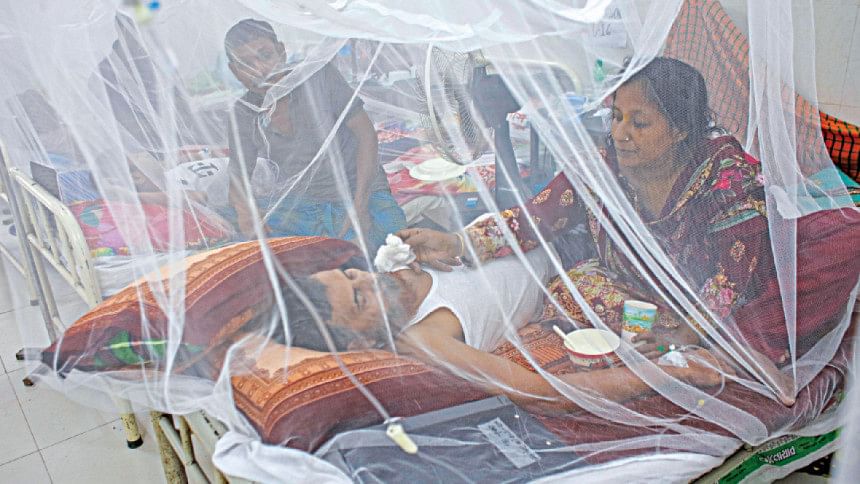
In the battle against dengue, Bangladesh stands at a critical juncture, facing an unprecedented surge in cases. As the nation grapples with the possibility of the deadliest outbreak ever witnessed, it's imperative that we mobilise every resource at our disposal to combat this relentless foe.
Dengue began to emerge as a significant public health concern at the turn of the century, but its proliferation seemed to decelerate between 2006 and 2010. This brief period of respite, however, was not to last. With the rapid pace of technological advancement, unrestrained urbanisation, and the swift onset of climate change, the dengue problem has surged with renewed vigour since 2015.
The harrowing statistics paint a grim picture: a staggering 321,179 reported cases in 2023 alone, with a heart-wrenching 1,705 lives lost to this insidious disease. These numbers are not just figures on a page; they represent mothers, fathers, sons, and daughters whose lives have been cut short by a preventable tragedy. Behind each statistic lies a story of anguish and despair, of families torn apart by the merciless grip of dengue.
Children, the most vulnerable among us, bear the brunt of this crisis, with over 113 young lives lost last year alone. Their innocence should shield them from such suffering, yet they are among the hardest hit.
But the true extent of this crisis may be even greater than official figures suggest. Underreporting and inadequate healthcare infrastructure means that the actual burden of dengue is likely far higher than we dare to imagine.
What's more, dengue's relentless march knows no season, with cases now being reported year-round, defying the traditional confines of the monsoon season. From January to April this year, 2,111 people have been hospitalised, with 24 lives tragically cut short.
Amidst the shadows of despair, a glimmer of hope illuminates our path forward—a chance to reverse the tide of dengue's relentless onslaught. As we confront this crisis head-on, we must not only learn from past experiences but also adopt a holistic, year-round approach to dengue prevention and control.
This journey begins with education as we strive to raise awareness within our communities about the perils of dengue and the simple yet impactful measures we can all take. From eradicating breeding grounds to practicing personal protective measures, each individual's contribution is vital in stemming the spread of this epidemic.
However, education alone cannot suffice. We must also bolster our healthcare infrastructure, ensuring equitable access to quality care and life-saving treatments for all, regardless of geographical location or socio-economic status. From the villages of rural Bangladesh to the bustling urban hubs, comprehensive healthcare must be within reach for every citizen.
Moreover, we must address the underlying environmental factors that fuel the dengue crisis, such as stagnant water and unplanned urbanisation. By implementing targeted vector control measures and fostering collaboration between governmental bodies and local communities, we can disrupt the breeding cycle of mosquitoes and mitigate the spread of dengue at its source.
Vector control measures in Bangladesh's municipal areas predominantly depend on fogging, which offers short-term relief but lacks long-term effectiveness. A more sustainable approach involves using targeted sugar baits, which have significantly reduced malaria in Zambia.
In rural and suburban regions, introducing predatory fish like guppies (Poecilia reticulata) into stagnant water bodies can curb dengue by consuming mosquito larvae. Additionally, fostering an environment conducive to mosquito predators such as frogs and wild lizards can serve as a natural and effective vector control measure. These biological agents can integrate seamlessly into the ecosystem, providing a sustainable solution that enhances existing efforts.
Yet, amidst these efforts, a critical gap persists—a gap between the wealth of scientific knowledge amassed by researchers and its translation into actionable policies by policymakers. This disconnect leaves us vulnerable to the escalating threat of dengue, with projections indicating a worsening infection scenario this year compared to 2023.
To bridge this gap effectively, we must consider innovative solutions, such as the establishment of dedicated agencies or institutional frameworks exclusively dedicated to vector control management programs. These entities would serve as catalysts for collaboration, fostering dialogue between researchers, policymakers, and other stakeholders to devise evidence-based strategies for combating the dengue epidemic comprehensively.
Examining global models reveals the pivotal role of dedicated agencies in combatting vector-borne diseases. Take, for instance, Europe's European Centre for Disease Prevention and Control (ECDC). Through collaboration with national health protection bodies, the ECDC's multifaceted approach, spanning surveillance to health communication, showcases the power of a unified front against vector-borne illnesses.
Across the Atlantic, the US Centers for Disease Control and Prevention (CDC) exemplifies specialised divisional prowess through its Division of Vector-Borne Diseases (DVBD), leading the charge in research and prevention efforts against mosquito and tick-borne ailments.
Near home, India's National Center for Vector Borne Diseases Control (NCVBDC) spearheads the National Vector Borne Diseases Control Programme (NVBDCP), employing targeted strategies like indoor residual spraying and insecticide-treated bed nets to combat malaria and dengue.
These international examples underscore the critical need for Bangladesh to establish similar dedicated agencies.
In Bangladesh, the Institute of Epidemiology, Disease Control, and Research (IEDCR) evaluates the overall dengue scenario, while city corporations manage the field-level implementation of vector control strategies. Given the current circumstances, establishing a dedicated organisation or agency focused on comprehensive surveillance and field-level execution for vector-borne diseases could significantly mitigate the impact during peak seasons. Such an entity would optimise resources and enhance the effectiveness of interventions by working in synergy with existing infrastructures, ensuring a more coordinated and robust response to this pressing public health challenge.
Through concerted efforts and coordinated action, we can harness the full potential of our scientific community to combat dengue effectively. The time for action is now. Let us not falter in the face of adversity but rather rise to meet the challenge with courage, determination, and unity.
Mahadee Al Mobin is research associate at Bangladesh Institute of Governance and Management (BIGM)
Views expressed in this article are the author's own.
Follow The Daily Star Opinion on Facebook for the latest opinions, commentaries and analyses by experts and professionals. To contribute your article or letter to The Daily Star Opinion, see our guidelines for submission.

 For all latest news, follow The Daily Star's Google News channel.
For all latest news, follow The Daily Star's Google News channel. 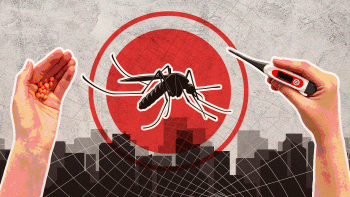
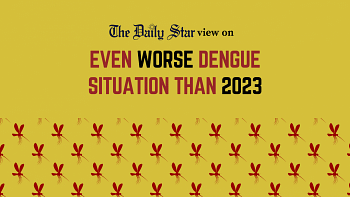


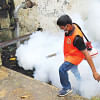


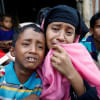



Comments